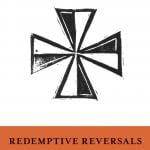This post is part of a series walking through the first volume of Abraham Kuyper’s Common Grace.
“Grace” as a broad and general things pre-dated the fall of man in the Garden of Eden:
“It is not as if grace appeared now [at the moment of the Fall] for the first time, for it is impossible to imagine man even for a moment in paradise without grace hovering around him and permeating him. For every rational creature, grace is the air of life he breathes.” (263)
But a specific category of grace begins at the Fall–namely, saving grace. This was not weakness in God, nor does it detract from His majesty. Saving grace first and foremost reveals God’s glory.
In fact, what we see after the fall is that grace has two categories relative to sin:
- Saving grace “ultimately cancels sin and completely neutralizes its consequences”, at least in the ultimate sense (we still experience discipline in this life, more about which later…); this kind of grace is limited to God’s elect.
- Common grace temporarily “stems and arrests the continued effect of sin.” This kind of grace is a blessing given to all mankind in all of life. (264)
But what is the relationship between these two categories of grace? We must not draw a line between the two and hold them in completely separate categories. If nothing else, there would have been no future generations of human beings from which God could draw the elect if not for common grace. And this preservation of mankind is more than just a physical restraint on the immediate effects of death–it is a softening of the general conditions of human life.
Kuyper warns us that we must be careful not to say that the only point of contact between common grace and saving grace is that the former facilitates the latter (though it does at least that). If we leave common grace there, we have shifted its purpose from God’s honor to my salvation. Of course, Christ and His work of salvation are central, but this truth must be seen in its broad sense–Kuyper argues that redemption is not for forgiveness of sin alone, but for the recreation of the whole world.
Having said this (pg 266-267), Kuyper immediately admonishes us not to diminish the importance of the atonement for sin or detract from penal substitution as the core of the Gospel. He simply wants us not to ignore the body, nature, and the history of the world.
“when [some people] think of Christ, they think exclusively of the sprinkling with the blood of atonement and refuse to take into account the significance of Christ also for the body, and for visible things, and for the outcome of world history.” (269)
When we limit our view of saving grace to the payment for sin, Kuyper thinks we are tempted to see the world as merely a parallel for our faith–“as something standing alongside your Christian religion and not as being governed by it.” (269) That is, we will see the world as place where we dwell that is largely irrelevant, rather than a place where our faith is to be expressed. Scripture repeatedly warns us against this by pointing to Christ as both Savior and Creator.
And here is where I am in very mild tension with Kuyper. I’ll have more to say about this in a later post (possibly not one of this series), because this is a topic I’ve been thinking about a lot lately. So, you know, keep reading for more…
Dr. Coyle Neal is co-host of the City of Man Podcast and an Associate Professor of Political Science at Southwest Baptist University in Bolivar, MO













